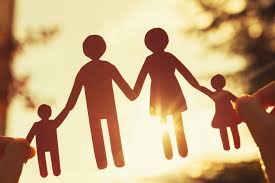Shortcomings and Flaws: 2019
/Years ago a reader accused me of being materialistic after I wrote about my lack of a favorite number, specifically criticizing me for saying that when it comes to my salary, my favorite number is the largest number possible.
After properly refuting the charges of materialism, I acknowledged that I had plenty of other shortcomings and offered to list them in order to appease my angry reader. Then I did. Then I added to the list when friends suggested that I had forgotten a few.
Nice friends. Huh?
So began an annual tradition of posting my list of shortcomings and flaws, starting first in 2011 (the list only had 10 items that year), and continuing in 2012, 2013, 2014, 2015, 2016, 2017, and 2018.
I'm happy to report that although the list remains relatively long (33 items this year), I'm removing one item from the list.
*** I take little pleasure in walking.
Somehow I’ve managed to find an appreciation for walking. I’d still rather be running, playing golf, or anything else to make the walk more productive, but stick me in a forest or on a mountain and I’ll happily walk.
I also thought that I might remove:
*** I can form strong opinions about things that I possess a limited knowledge of and are inconsequential to me.
Elysha says no. She points out that I enjoy staking opinions for the sake of debate, even when I’m not prepared to stake out a position.
Fine…
I also wanted to remove these two:
*** I drink too much Diet Coke.
*** I wear my wireless headphones way too much.
I’ve stopped seeing either of these as a negative., but I know that the rest of the world does (actually, my doctor has no problem with my Diet Coke consumption), so I’ll accept their assessment for the time being.
Many new flaws and shortcomings were proposed - some in jest - but quite a few in reality. A couple that were seriously considered:
*** I don’t sleep enough.
I’ve certainly heard this one before, but when this accusation is leveled against me, I always respond by asking if I ever appear tired. Do I complain about being exhausted? Am I not productive enough during the day because of fatigue? Do I look like I need more sleep? Did you know that I often awaken without an alarm clock and pop out of bed like a jack-in-the-box? Did you also know that even though I only sleep 4-6 hours every night, I spend almost every moment of that time asleep? I don’t watch television or read in bed, and I fall asleep almost instantly. I don’t waste a moment of time while in bed.
If I felt tired or fatigued or lethargic, I would sleep more. I just don’t.
*** You correct people when they didn’t need to be corrected.
This was something someone noticed me doing to Elysha on the podcast, but I asked Elysha if it was true, and she says no. When I correct Elysha on the podcast, it’s for very specific reasons, mostly related to the fact that thousands of people listen to each episode, and if you allow an error to stand, you’re going to get email about it or mislead people in an annoying direction.
I would expect the same from here.
*** You may be too presumptuous in assuming that your followers (both nice and naughty) care all that much about your self-crested lists of flaws.
This made me laugh, but it’s not an assumption I make. Some of my posts - like this one and my monthly resolution updates - are admittedly written more for myself than my readers. I’m holding myself publicly accountable, but I never think that a post like this will be popular or well read (though my resolution updates are surprisingly popular).
Therefore, for just the second time ever, no new items have been added to the list. I may finally be evolving into a better human being.
If you would like to propose an addition to the list, please let me know, and it will be considered.
Matthew Dicks’s List of Shortcomings and Flaws
1. I have a limited, albeit expanding palate (though I'd like to stress that my limited palate is not by choice).
2. I am a below average golfer (but showing rapid improvement this year).
3. It is hard for me to empathize with adults with difficulties that I do not understand and/or are suffering with difficulties that I would have avoided entirely.
4. I have difficulty putting myself in another person’s shoes. Rather than attempting understand the person, I envision myself within their context and point out what I would've done instead.
5. I do many things for the sake of spite.
6. I have an unreasonable fear of needles (though my PTSD definitely plays a role in this).
7. I become angry and petulant when told what to wear.
8. Bees kill me dead.
9. I become sullen and inconsolable when the New England Patriots lose a football game.
10. I lack adequate empathy for adults who are not resourceful or are easily overwhelmed.
11. I can form strong opinions about things that I possess a limited knowledge of and are inconsequential to me.
12. I am unable to make the simplest of household or automobile repairs.
13. I would rarely change the sheets on my bed if not for my wife.
14. I eat ice cream too quickly.
15. I procrastinate when it comes to tasks that require the use of the telephone (visual voicemail has corrected this problem on the cellphone but not on my landline at work)
16. I am uncomfortable and ineffective at haggling for a better price.
17. I am exceptionally hard on myself when I fail to reach a goal or meet a deadline.
18. Sharing food in restaurants annoys me.
19. I drink too much Diet Coke.
20. My dislike for ineffective, inefficient, or poorly planned meetings causes me to be unproductive, inattentive, and obstructionist at times (I’ve adjusted the language on this one to acknowledge that some meetings are necessary and acceptable)
21. Disorganization and clutter negatively impacts my mood, particularly when I cannot control the clutter myself
22. I am overly critical of my fellow storytellers, applying my own rules and standards to their performances.
23. I think less of people who nap (though I've come to accept and even embrace the 10-15 minute power nap in the middle of the work day, I still think that anyone who is napping on a Sunday afternoon for three hours or comes home from work and naps until dinner is at best a disappointment).
24. I lack patience when it comes to assisting people with technology.
25. I don't spend enough time with my best friend (I’m trying like hell to fix this).
26. I have a difficult time respecting or celebrating someone's accomplishments if economic privilege, nepotism, or legacy assisted in their success in some way.
27. I believe that there are right and wrong ways of parenting.
28. I love saying, "I told you so" so freaking much.
29. I wear my wireless headphones way too much.
30. I consistently screw up my wife's laundry regardless of how careful I think I am,
31. My blog entries contain far too many typos, despite my loathing of typos.
32. I leave my credit card at restaurants far too often.
33. I don't ride my bicycle - alone and with my kids - nearly enough.
















